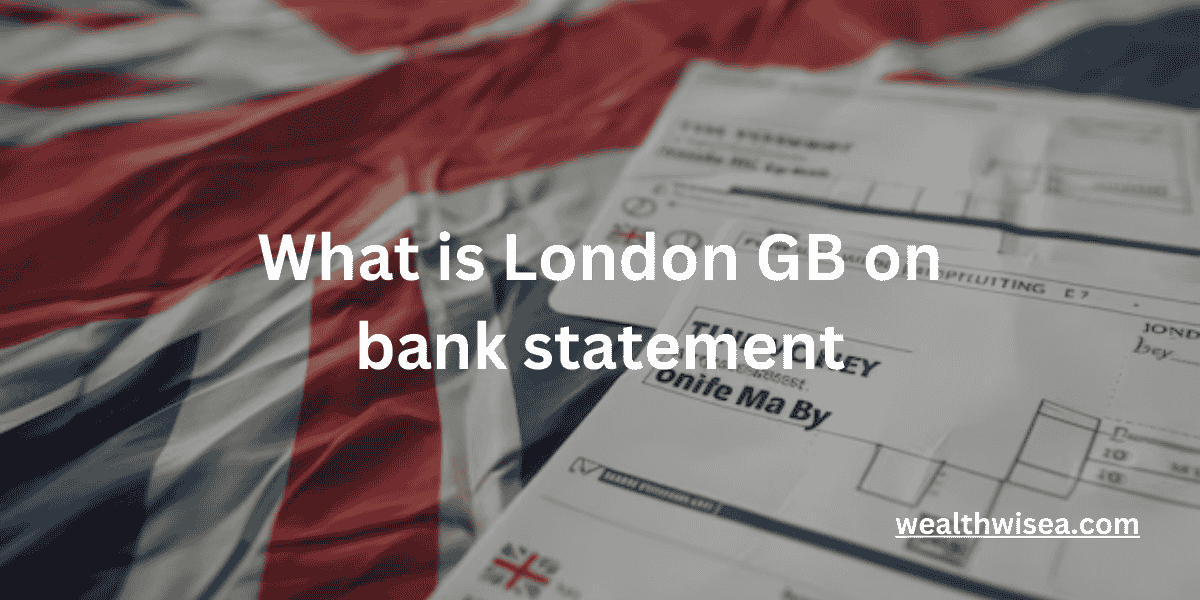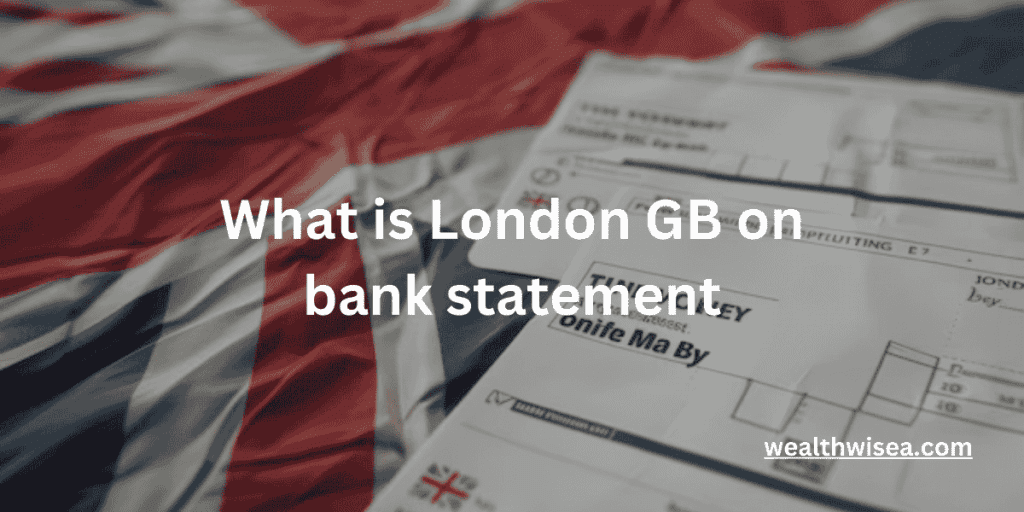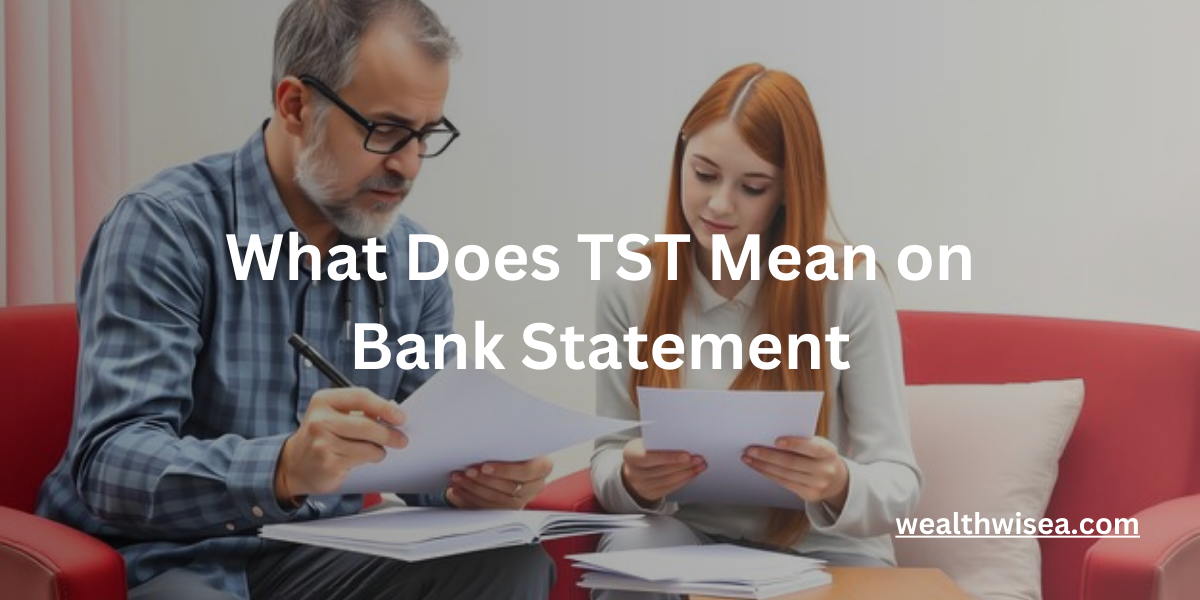What is London GB on Bank Statement

If you’ve spotted “London GB” on your bank statement and aren’t sure what it means, you’re not alone. Many people are puzzled by this unfamiliar charge, especially if they don’t remember making any purchases in London or the UK. In this article, we’ll break down what “London GB” on a bank statement might indicate, when you should be concerned, and what steps to take next.

What Does “London GB” on Bank Statement Mean?
In most cases, the label “London GB” refers to a transaction processed in London, United Kingdom. The “GB” stands for Great Britain. This label might appear if you’ve made an online purchase from a UK-based business or used a service that processes payments through a payment gateway or financial institution in London.
Even if you didn’t physically make a purchase in London, many companies and online retailers route payments through financial hubs like London. This is particularly common for international transactions, so if you’ve bought something from a foreign vendor or subscribed to a global service, the charge might show up as “London GB.”
Common Reasons for “London GB” Charges
If you’re wondering why “London GB” showed up on your bank statement, it could be for a variety of reasons:
- International Online Purchases
If you’ve recently bought something from a UK-based online store, this is a likely explanation. Many retailers process payments through London-based financial systems, which could cause “London GB” to appear on your statement. - Subscription Services
Many international subscription services such as streaming platforms, software, or cloud services might process payments from London. If you have an ongoing subscription to a service that operates internationally, this could explain the charge. - Travel-Related Transactions
Have you been to the UK recently or used a travel-related service? If you’ve booked a flight, hotel, or paid for other travel-related services tied to London, these charges could show up as “London GB.” - Currency Exchange Services
Payments related to foreign exchange or international transactions often pass through major financial centers like London. This could apply if you’ve used currency exchange platforms or apps for international payments.
What to Do if You Don’t Recognize the Charge
If you’re still unsure about the charge and don’t recall making any purchases linked to the UK, here’s what you can do:
- Double-Check Your Recent Transactions
Go through your recent transactions to see if any purchases match the amount and timing of the “London GB” charge. Online purchases, travel bookings, or subscriptions might explain the charge. - Contact Your Bank
If you can’t identify the transaction, reach out to your bank. They can provide further details about the merchant associated with the “London GB” label. Banks often have more information about the location and nature of the transaction. - Monitor Your Account
If the charge doesn’t seem familiar, it’s important to keep an eye on your account for any other suspicious activity. You may want to change your passwords or set up account alerts to track any unusual transactions.
Is It Fraudulent?
While a “London GB” charge is usually legitimate, it’s good to stay cautious. If you’ve ruled out legitimate purchases and suspect fraud, contact your bank immediately to dispute the transaction and take action to secure your account.
For other mysterious charges that appear on your bank statement, like TPG Products or payment processors such as Fenix Internet, review your financial activity carefully to ensure your account is secure.
Conclusion
Seeing “London GB” on your bank statement isn’t always a cause for concern. In most cases, it’s linked to legitimate purchases or services processed through UK-based financial systems. However, if you’re ever in doubt, it’s essential to investigate further by reviewing your recent transactions and contacting your bank.
By staying vigilant, you can better protect your financial health and ensure all charges on your bank statement are accurate and legitimate.
FAQs
1. What does “London GB” mean on my bank statement?
“London GB” on your bank statement indicates a transaction processed in London, United Kingdom. It could be linked to online purchases, subscription services, or international transactions routed through financial systems in London.
2. Is “London GB” a fraudulent charge?
Not necessarily. Many legitimate transactions, especially international ones, are processed through London-based payment systems. However, if you don’t recognize the charge, it’s best to review your recent purchases and contact your bank for clarification.
3. I’ve never been to London. Why is “London GB” showing up on my statement?
Even if you haven’t been to London, certain businesses, especially international retailers and services, process payments through financial centers like London. Online purchases, subscription services, or currency exchanges could lead to a “London GB” charge appearing.
4. What should I do if I don’t recognize the “London GB” charge?
First, review your recent transactions, such as online orders or subscription services. If you still don’t recognize the charge, contact your bank for more information. They can help verify the legitimacy of the transaction or assist in disputing it if necessary.
5. Can I dispute a “London GB” charge?
Yes, if you believe the charge is fraudulent or unrecognized, you can dispute it by contacting your bank. Provide them with the details, and they will guide you through the process of investigating or refunding the charge.
6. Are charges like “TPG Products” or “Fenix Internet” related to “London GB”?
Not directly. However, like “London GB,” TPG Products or Fenix Internet can appear on your statement due to international processing systems. Always review unfamiliar charges to ensure they’re legitimate.
7. How can I prevent unfamiliar charges like “London GB” from appearing?
Regularly monitoring your bank statements and keeping track of your online purchases and subscriptions can help. You can also set up account alerts for any international or unusual activity to stay ahead of potential issues.



